One of the most codified outfits besides the morning coat or frock coat is the tuxedo. In recent years, weddings have become one of the most popular occasions for wearing the “tuxedo”, as it's known across the Channel.
It's obviously an evening, cocktail or ceremony garment that outstrips fashion and collections. So if you've opted for a “Black Tie” dresscode, whether you're the groom, one of the witnesses or even one of the guests, we're going to introduce you to one of the most elegant garments in the men's wardrobe, which will replace the traditional wedding suit.
To begin with, the most important factor in choosing a tuxedo is the material, and as you'll see, there aren't many alternatives.
Book an appointment
It's a fairly soft fabric, combining a twill weave (diagonals) and hopsack (braid, check weave), which gives the fabric an irregular appearance from which it takes its name. Traditionally, it is only available in black or midnight blue, in 100% wool or a wool/mohair blend.
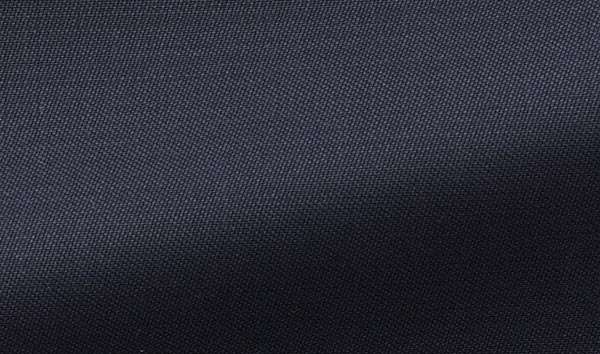
Because of its nervous, irregular appearance, fresco can also be used to create a tuxedo.
The wool threads are wound around themselves a large number of times, which results in a rather dry, airy fabric that, above all, does not crease. It is highly recommended when temperatures rise.
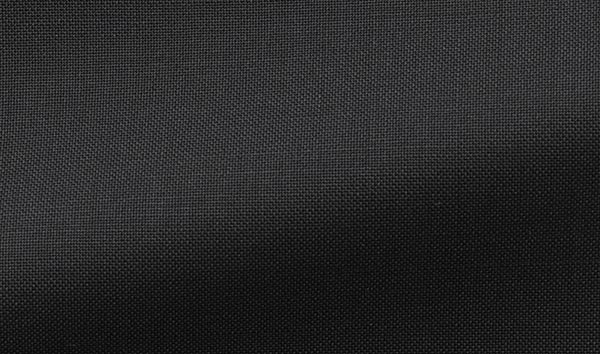
It is also very common for the jacket to be worn with tuxedo trousers, which are made of powder-coated cotton or classic virgin wool. Why mismatch? Because originally, the tuxedo only referred to the jacket.
Which one would put on after dinner to go to the smoking room and thus prevent the jacket one had been wearing up to then from becoming impregnated with the smell of cigars.
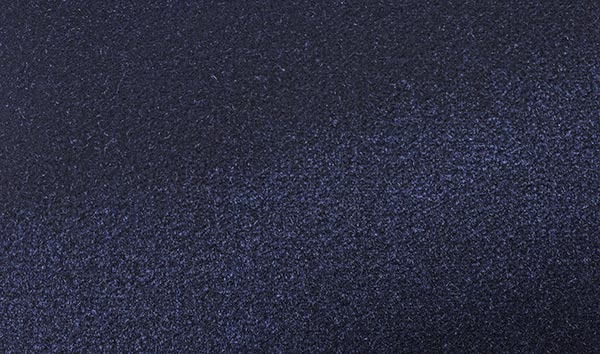
Certainly the most classic color when it comes to the idea of the formal tuxedo. Black is not ostentatious but rather austere and discreet, leading some to think that originally the tuxedo was black to highlight the dress of the woman you were accompanying. So for a tuxedo, it's never a bad idea.
a very classic second choice that we find even more elegant at Swann. By this we mean a very dark fabric, almost black, to understand that it is not. And above all, leave the lapels in black satin, which is how the midnight blue is revealed.
We're not going to lie to each other, for us a full evening tuxedo is black or midnight blue, nothing else. But if you decide to go for a mismatched tuxedo (which we also love), and therefore even more traditional, there are several pretty cool alternatives, such as green or burgundy, or even tuxedo jackets with embroidered patterns. In any case, for this type of jacket, it is better to choose a cotton velvet.
Book an appointment
Once again, as the tuxedo is certainly the most codified item of clothing in the male wardrobe, it is best to follow certain rules to avoid any lapses in taste.
The most classic today is the single-breasted jacket. If this is your choice, it should of course be a single-button jacket, not a two-button one. The classic tuxedo jacket is much more formal.
If you want to go one step further, the double-breasted tuxedo, with 4 or 6 buttons, is a particularly elegant choice. Prefer it with fairly wide lapels.
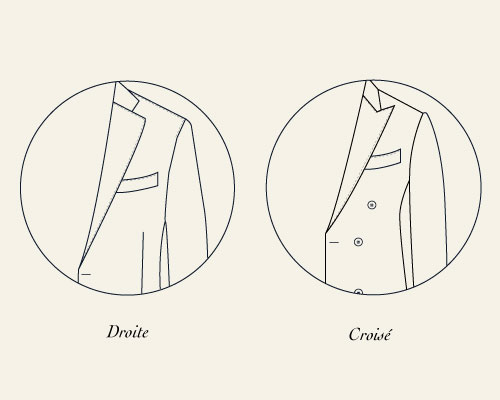
You will notice that we do not talk about lapels but about the collar, because there is no demarcation between the collar and the lapels. For a tuxedo, it will always be satin in the same tone as the fabric of the jacket or in black, for example, if you choose an unusual fabric.
This is the most classic lapel. It is so called because it forms a sharp angle going up towards the shoulder. It is a very elegant lapel. Prefer it with a good width. Note that it is strongly discouraged to wear a classic notch as on a city suit or a blazer.
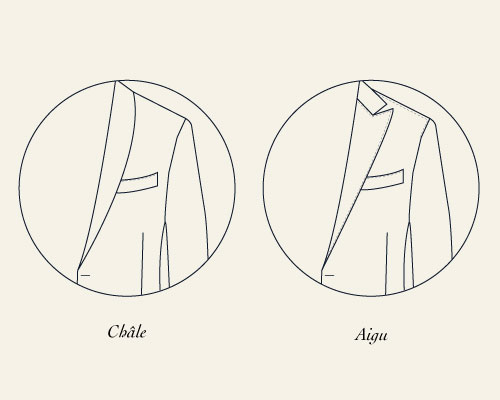
This shoulder is the most formal. It is neat and the thickness of felt on the inside will give a fairly straight shoulder. It is the most classic choice.
For freedom of movement and a more nonchalant style. Which can be a good option for a tuxedo. Opt for a shoulder with very little or no padding. The shoulder will therefore follow the shape of your body. It is a very comfortable element that we particularly like.
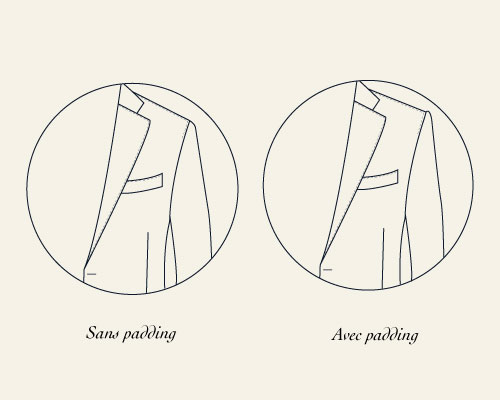
These are the most classic pockets. It is of course an option that you can choose, but for a tuxedo they tend to weigh the silhouette down a little.
These are the perfect pockets for a tuxedo, they are discreet and give the jacket a formal feel. Note that these pockets can also be made in the same satin as the lapels.
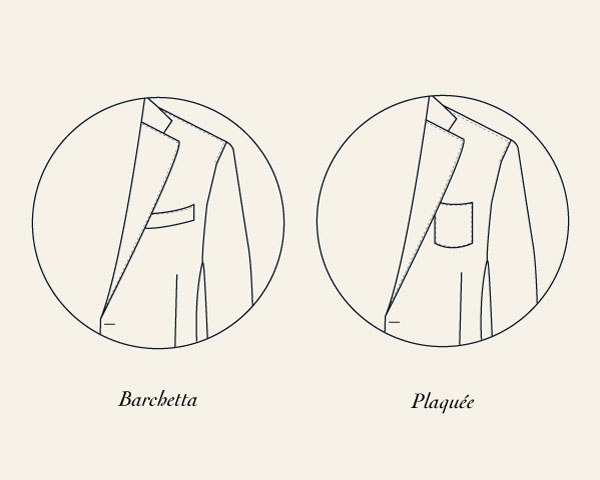
These are the most classic pockets, you can't go wrong. Choose these pockets to bring a touch of formality to your outfit if you have chosen a linen in an unusual color.
For an even more casual look, you can choose patch pockets, and for a timeless Italian style, choose rounded ones. At Swann, it's a bit of a signature.
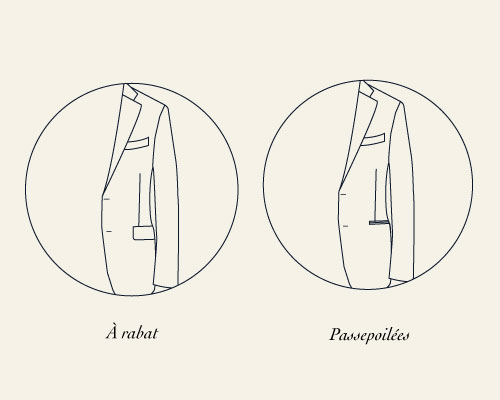
For us, it's the only option for a tuxedo. The buttons are covered with satin to match the lapels, pockets and possibly the braid on the trousers.
Of course, be careful to choose exactly the same satin. Don't play around with other colors.
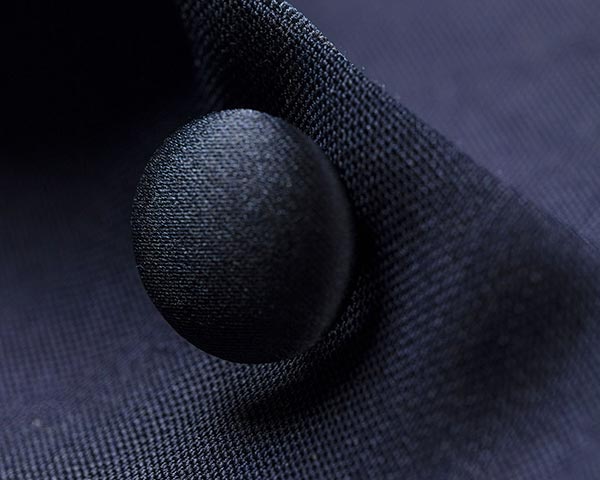
This is the most common solution. Be careful to choose a belt that is very simple and fairly thin. Think of it more as jewelry and not just as a comfort accessory.
An ideal solution, as it is both comfortable and elegant. It also allows you to wear a satin cummerbund. Which is very, very elegant.
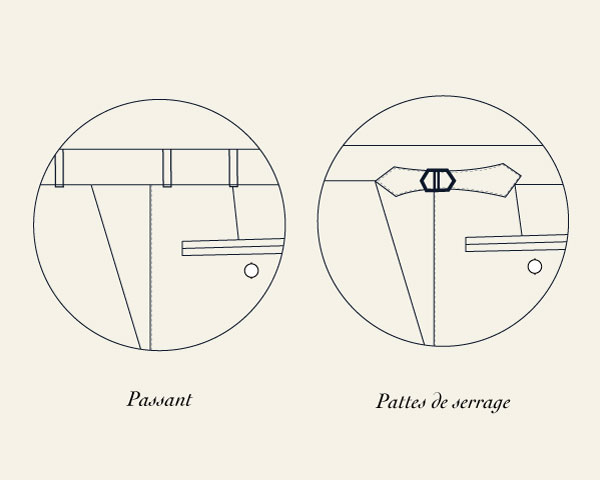
With a bias or Italian pockets, they start from the seam of the leg and end in a staggered manner at the waistband of the trousers. They are classic and practical because the pocket opening is in the direction of the arm.
In tailoring, these are more formal pockets because they are more discreet. The opening of these pockets is along the leg seam, so they are practically invisible. Choose these pockets if you have chosen a braid along the leg.
Two jet pockets with button are the most common pockets on a city suit. However, we feel that a single pocket on the right is the most suitable choice for formal attire.
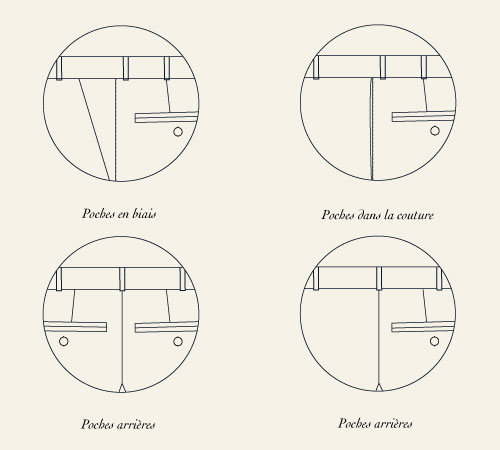
You can opt for a simple sock, which is the most elegant option for us because it is the most discreet and therefore the most formal.
If you want to opt for a more assertive style, choose a turn-up, but no more than 4 cm in height to keep it very classic.
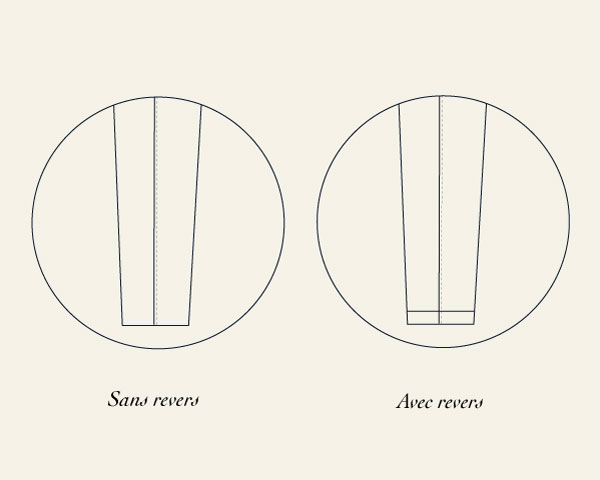
As you have seen, even if the tuxedo is a particularly codified element of the male wardrobe, there are still a number of choices that will allow you to wear the tuxedo that suits you. Beyond these questions of style, the fit and cut are particularly important to us.
Bespoke tailoring allows you to choose your fabric from weavers offering the best quality, but also to adjust a garment to fit you perfectly: Fitted but not too slim, with a collar that ties well (no space between the collar of the jacket and your shirt collar), a high armhole giving you more comfort and of course a lapel width that suits your morphology, the right length of jacket, trousers and sleeves. As you will have understood, all these elements are difficult to achieve in ready-to-wear.
Book an appointment